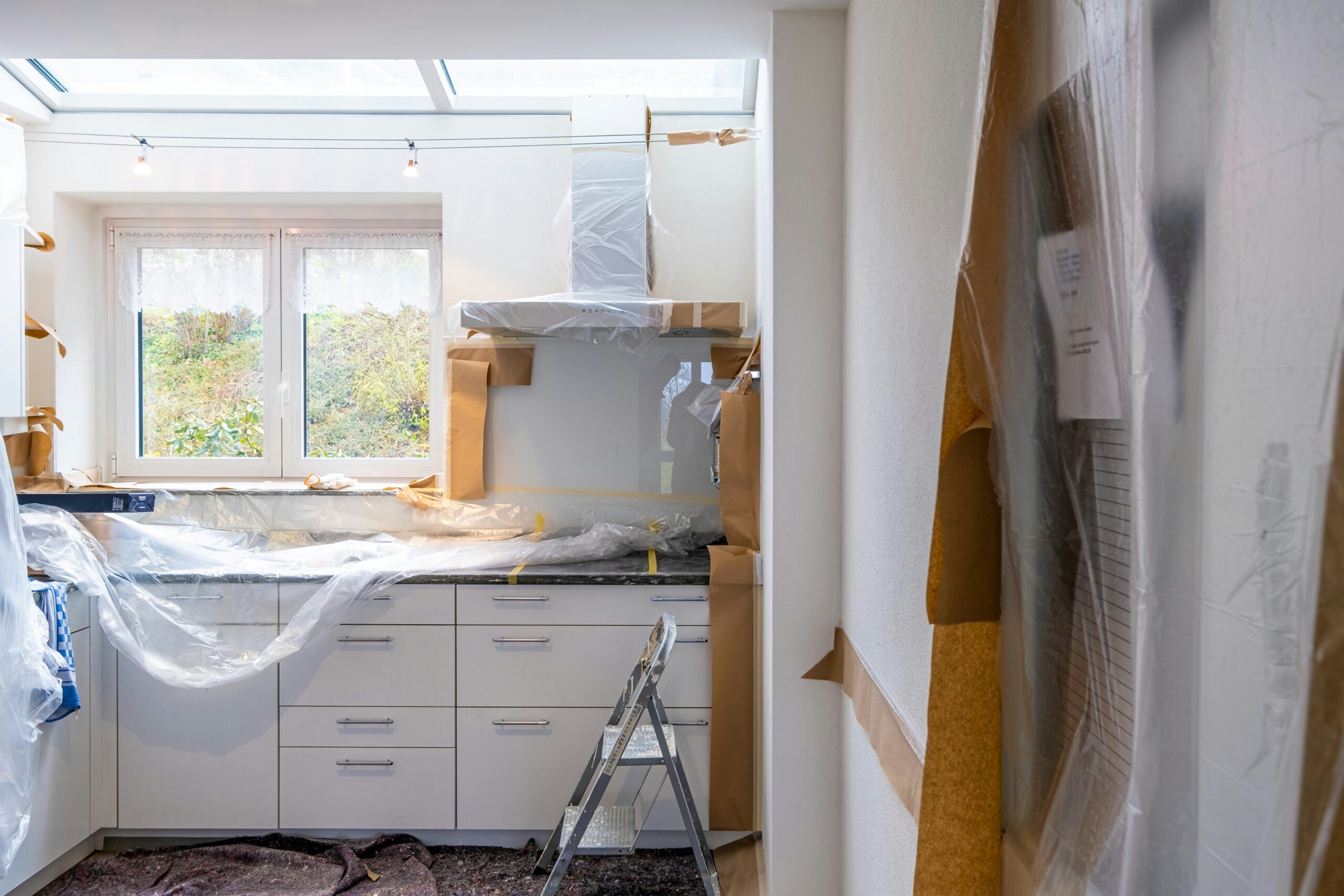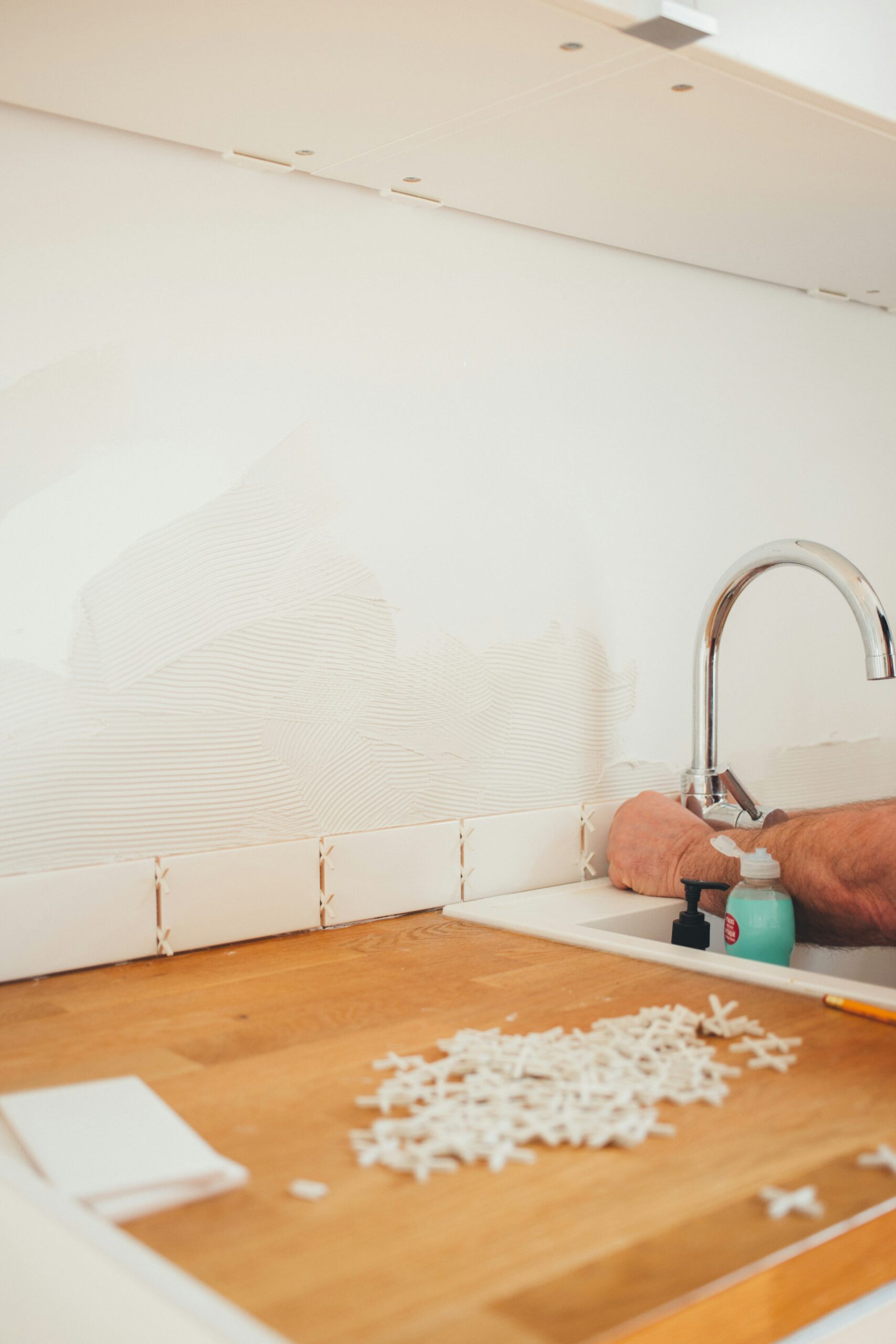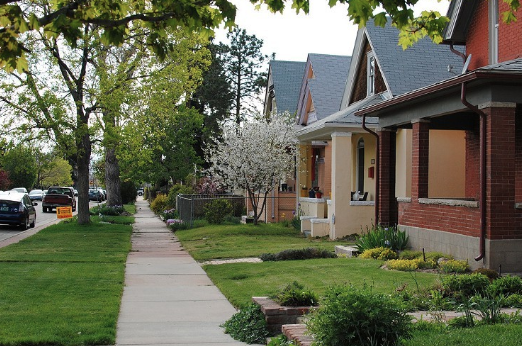Kitchen Renovation Costs in Denver: What to Expect in 2025
July 29, 2025
Kitchen Renovation Costs in Denver: What to Expect in 2025
July 29, 2025
Kitchen renovations consistently rank as one of the most popular and valuable home improvement projects, and for good reason. A well-executed kitchen remodel can transform your daily living experience while adding significant value to your Denver home. As both a General Contractor and Realtor who specializes in kitchen renovations throughout Denver, Englewood, Littleton, and surrounding areas, I’ve helped countless homeowners navigate the costs and decisions involved in creating their dream kitchens.
Understanding realistic kitchen renovation costs is crucial for successful project planning. Too many homeowners start kitchen projects with unrealistic budgets, leading to compromises that affect both function and satisfaction. Let me share the current cost realities for Denver kitchen renovations, along with strategies to maximize your investment and avoid common budget pitfalls.
The Current Denver Kitchen Renovation Market
Denver’s strong economy and competitive real estate market have influenced renovation costs across all project types, and kitchens are no exception. Material costs, labor availability, and permit requirements all affect your total investment, making local expertise essential for accurate budgeting.
Market Factors Affecting Costs
Denver’s construction boom has created high demand for skilled contractors, which has driven labor costs up significantly over the past few years. Quality kitchen contractors are often booked months in advance, and this demand allows the best contractors to command premium pricing for their expertise.
Material costs have also increased, particularly for appliances, cabinetry, and stone countertops. Supply chain disruptions and increased demand have affected availability and pricing for many kitchen components, making early planning and material selection crucial for budget control.
Local Code and Permit Considerations
Denver’s building codes are comprehensive and strictly enforced, which affects renovation costs through permit requirements, inspection fees, and compliance standards. Kitchen renovations typically require electrical, plumbing, and sometimes structural permits, if needed, each can add to project costs and timelines.
The good news is that proper permitting protects your investment and ensures your renovation meets safety standards that protect your family and maintain your home’s value.
Kitchen Renovation Cost Categories
Budget-Friendly Updates: $15,000 – $30,000
Budget renovations focus on cosmetic improvements that refresh your kitchen’s appearance without major layout changes or structural work. These projects typically include painting cabinets, updating hardware, replacing countertops with laminate or butcher block, installing new backsplashes, and updating lighting fixtures.
While budget renovations won’t transform your kitchen completely, they can provide significant visual impact and improved functionality when done thoughtfully. The key is focusing on changes that provide the biggest visual impact for your investment.
Mid-Range Renovations: $30,000 – $60,000
Mid-range kitchen renovations typically include new cabinets or cabinet refacing, quartz or granite countertops, mid-range appliance packages, updated flooring, and improved lighting. These projects often involve some layout modifications and may require electrical and plumbing updates.
This budget range allows for significant improvements in both appearance and functionality while maintaining reasonable cost control. Most Denver homeowners find this range provides excellent value for their investment.
High-End Renovations: $60,000 – $100,000+
High-end kitchen renovations include custom cabinetry, premium appliances, natural stone countertops, hardwood or tile flooring, and comprehensive electrical and plumbing updates. These projects often involve layout changes, structural modifications, and premium finishes throughout.
Luxury renovations in Denver can easily exceed $100,000 when they include high-end appliances, custom millwork, and premium materials. These investments make sense for high-value homes and homeowners planning to stay long-term.
Detailed Cost Breakdown by Component
Cabinetry: The Biggest Investment
>Kitchen cabinets typically represent 35-40% of your total renovation budget, making them the single largest expense in most projects. Stock cabinets from big-box stores start around $150-300 per linear foot installed, while semi-custom cabinets range from $300-600 per linear foot, and custom cabinets can exceed $800-1,200 per linear foot.
The wide price range reflects differences in construction quality, materials, hardware, and customization options. Higher-quality cabinets not only look better but also function better and last longer, making them a worthwhile investment for most homeowners.
Countertops: Style and Function
Countertop costs vary dramatically based on material choice and installation complexity. Laminate countertops start around $25-50 per square foot installed, while quartz ranges from $60-100 per square foot, granite runs $50-80 per square foot, and premium materials like marble or quartzite can exceed $100 per square foot.
Consider both initial cost and long-term maintenance when selecting countertop materials. Quartz offers excellent durability and low maintenance, while natural stone provides unique beauty but requires more care.
Appliances: Balancing Features and Budget
Appliance costs can range from $3,000 for basic packages to $15,000 or more for professional-grade equipment. Most Denver homeowners invest $6,000-10,000 in appliances for mid-range renovations, focusing on energy efficiency, reliability, and features that match their cooking habits.
Consider your actual cooking and entertaining needs when selecting appliances. Professional-grade ranges and built-in refrigerators are impressive but may not provide value if you rarely cook elaborate meals.
Flooring: Foundation for Design
Kitchen flooring costs range from $3-15 per square foot installed, depending on material choice. Luxury vinyl plank offers durability and water resistance at $4-8 per square foot, while hardwood ranges from $8-15 per square foot, and tile varies widely from $5-20 per square foot depending on material and installation complexity.
Choose flooring that can handle kitchen moisture and traffic while complementing your overall design. Durability and maintenance requirements should factor heavily into your decision.
Labor Costs and Project Management
Contractor Selection and Pricing
Quality kitchen contractors in Denver typically charge $50-100 per hour for skilled labor, with project-based pricing that includes materials markup of 10-20%. The total labor cost usually represents 20-25% of your project budget, though this can vary based on project complexity and contractor experience.
Remember that the lowest bid isn’t always the best value. Experienced contractors who specialize in kitchen renovations often complete projects faster and with fewer problems, ultimately providing better value despite higher initial costs.
Project Timeline and Carrying Costs
Most kitchen renovations take 4-8 weeks to complete, during which your kitchen will be largely unusable. Factor in costs for eating out, using temporary cooking arrangements, and any additional expenses related to kitchen disruption.
Proper project planning and realistic timelines help minimize disruption and additional costs. Experienced contractors can often work more efficiently and minimize the time your kitchen is out of service.
Maximizing Your Kitchen Renovation Investment
Focus on Layout and Functionality
The most successful kitchen renovations improve both appearance and functionality. Consider how you actually use your kitchen and prioritize improvements that enhance your daily experience. Better storage, improved workflow, and adequate counter space often provide more satisfaction than premium finishes alone.
Choose Timeless Design Elements
While trendy features can be appealing, classic design elements tend to age better and
appeal to more potential buyers if you sell. Focus trends on easily changeable elements like paint colors, hardware, and accessories rather than permanent fixtures.
Plan for the Unexpected
Kitchen renovations often reveal unexpected issues like outdated wiring, plumbing problems, or structural concerns. Budget an additional 15-20% contingency fund to handle these surprises without derailing your project.
Return on Investment Considerations
Market Value Impact
Kitchen renovations typically return 60-80% of their cost in increased home value, making them one of the better renovation investments. However, returns vary based on your home’s value, neighborhood standards, and renovation quality.
Over-improving for your neighborhood can limit your return on investment, while under-improving may not provide the functionality and enjoyment benefits you’re seeking.
Personal Enjoyment Value
Beyond financial returns, consider the daily enjoyment and improved functionality a kitchen renovation provides. If you plan to stay in your home for many years, the personal benefits often justify investments that might not show immediate financial returns.
Common Budget Mistakes to Avoid
Underestimating Total Costs
Many homeowners focus only on material costs and underestimate labor, permits, and unexpected expenses. Always get comprehensive estimates that include all project aspects, and add a realistic contingency fund.
Changing Plans Mid-Project
Design changes during construction are expensive and can significantly impact your timeline. Finalize all decisions before construction begins, and resist the temptation to make changes once work is underway.
Skipping Professional Help
While DIY work can save money, kitchen renovations involve complex electrical, plumbing, and structural considerations that require professional expertise. Poor DIY work often costs more to fix than hiring professionals initially.
Financing Your Kitchen Renovation
Cash vs. Financing Options
Cash payments often provide negotiating leverage with contractors and avoid interest costs. However, home equity loans, personal loans, or cash-out refinancing can provide access to renovation funds while preserving cash reserves for other needs.
Contractor Financing
Some contractors offer financing options, but compare rates and terms carefully with other financing sources. Contractor financing can be convenient but isn’t always the most cost-effective option.
Planning Your Denver Kitchen Renovation
Start with Clear Goals
Define your renovation goals clearly: Are you improving functionality, updating style, increasing home value, or addressing maintenance issues? Clear goals help guide decisions and prioritize spending.
Get Multiple Estimates
Obtain detailed estimates from qualified contractors. Compare not just prices but also project approaches, timelines, and included services. The lowest bid isn’t always the best value. The team you hire will be working in your home for weeks. Teaming with someone you like talking with regularly and trust is invaluable.
Plan for Disruption
Kitchen renovations significantly disrupt daily routines. Plan alternative cooking arrangements, consider the impact on family schedules, and prepare for the inconvenience that comes with major renovations.
Working with the Right Team
Contractor Selection Criteria
Choose contractors with specific kitchen renovation experience, proper licensing and insurance, and strong local references. Kitchen renovations require coordination of multiple trades and careful project management to achieve quality results on schedule.
Communication and Project Management
Successful kitchen renovations require clear communication between homeowners and contractors. Establish regular check-ins, document decisions and changes, and maintain open communication throughout the project.
The Bottom Line: Smart Kitchen Investment
Kitchen renovations represent significant investments that can transform your daily living experience while adding value to your Denver home. The key is realistic budgeting, thoughtful planning, and working with experienced professionals who understand both the technical requirements and design possibilities.
Remember that the best kitchen renovation is one that meets your family’s needs, fits your budget, and enhances your home’s value. Focus on quality improvements that provide both immediate enjoyment and long-term value.
Ready to Plan Your Dream Kitchen?
Whether you’re considering a budget refresh or a complete kitchen transformation, I can help you navigate the costs, decisions, and process involved in creating your ideal kitchen. As both a General Contractor specializing in kitchen renovations and a Realtor who understands home values, I provide the expertise you need for successful kitchen renovation planning and execution.
Schedule Your Kitchen Renovation Consultation:
- Detailed cost estimates based on your specific goals and space
- Design guidance that maximizes both function and value
- Project planning and timeline development
- Contractor recommendations and project management support
Kitchen renovations consistently rank as one of the most popular and valuable home improvement projects, and for good reason. A well-executed kitchen remodel can transform your daily living experience while [...]
Fixer-uppers can be fantastic opportunities to build equity and create your dream home at a lower entry price. As both a General Contractor and Realtor in Denver, I've helped countless [...]
Timing can make a significant difference in how quickly your Denver home sells and the price you receive. As both a Realtor and General Contractor who's helped countless homeowners navigate [...]
Kitchen renovations consistently rank as one of the most popular and valuable home improvement projects, and for good reason. A well-executed kitchen remodel can transform your daily living experience while adding significant value to your Denver home. As both a General Contractor and Realtor who specializes in kitchen renovations throughout Denver, Englewood, Littleton, and surrounding areas, I’ve helped countless homeowners navigate the costs and decisions involved in creating their dream kitchens.
Understanding realistic kitchen renovation costs is crucial for successful project planning. Too many homeowners start kitchen projects with unrealistic budgets, leading to compromises that affect both function and satisfaction. Let me share the current cost realities for Denver kitchen renovations, along with strategies to maximize your investment and avoid common budget pitfalls.
The Current Denver Kitchen Renovation Market
Denver’s strong economy and competitive real estate market have influenced renovation costs across all project types, and kitchens are no exception. Material costs, labor availability, and permit requirements all affect your total investment, making local expertise essential for accurate budgeting.
Market Factors Affecting Costs
Denver’s construction boom has created high demand for skilled contractors, which has driven labor costs up significantly over the past few years. Quality kitchen contractors are often booked months in advance, and this demand allows the best contractors to command premium pricing for their expertise.
Material costs have also increased, particularly for appliances, cabinetry, and stone countertops. Supply chain disruptions and increased demand have affected availability and pricing for many kitchen components, making early planning and material selection crucial for budget control.
Local Code and Permit Considerations
Denver’s building codes are comprehensive and strictly enforced, which affects renovation costs through permit requirements, inspection fees, and compliance standards. Kitchen renovations typically require electrical, plumbing, and sometimes structural permits, if needed, each can add to project costs and timelines.
The good news is that proper permitting protects your investment and ensures your renovation meets safety standards that protect your family and maintain your home’s value.
Kitchen Renovation Cost Categories
Budget-Friendly Updates: $15,000 – $30,000
Budget renovations focus on cosmetic improvements that refresh your kitchen’s appearance without major layout changes or structural work. These projects typically include painting cabinets, updating hardware, replacing countertops with laminate or butcher block, installing new backsplashes, and updating lighting fixtures.
While budget renovations won’t transform your kitchen completely, they can provide significant visual impact and improved functionality when done thoughtfully. The key is focusing on changes that provide the biggest visual impact for your investment.
Mid-Range Renovations: $30,000 – $60,000
Mid-range kitchen renovations typically include new cabinets or cabinet refacing, quartz or granite countertops, mid-range appliance packages, updated flooring, and improved lighting. These projects often involve some layout modifications and may require electrical and plumbing updates.
This budget range allows for significant improvements in both appearance and functionality while maintaining reasonable cost control. Most Denver homeowners find this range provides excellent value for their investment.
High-End Renovations: $60,000 – $100,000+
High-end kitchen renovations include custom cabinetry, premium appliances, natural stone countertops, hardwood or tile flooring, and comprehensive electrical and plumbing updates. These projects often involve layout changes, structural modifications, and premium finishes throughout.
Luxury renovations in Denver can easily exceed $100,000 when they include high-end appliances, custom millwork, and premium materials. These investments make sense for high-value homes and homeowners planning to stay long-term.
Detailed Cost Breakdown by Component
Cabinetry: The Biggest Investment
>Kitchen cabinets typically represent 35-40% of your total renovation budget, making them the single largest expense in most projects. Stock cabinets from big-box stores start around $150-300 per linear foot installed, while semi-custom cabinets range from $300-600 per linear foot, and custom cabinets can exceed $800-1,200 per linear foot.
The wide price range reflects differences in construction quality, materials, hardware, and customization options. Higher-quality cabinets not only look better but also function better and last longer, making them a worthwhile investment for most homeowners.
Countertops: Style and Function
Countertop costs vary dramatically based on material choice and installation complexity. Laminate countertops start around $25-50 per square foot installed, while quartz ranges from $60-100 per square foot, granite runs $50-80 per square foot, and premium materials like marble or quartzite can exceed $100 per square foot.
Consider both initial cost and long-term maintenance when selecting countertop materials. Quartz offers excellent durability and low maintenance, while natural stone provides unique beauty but requires more care.
Appliances: Balancing Features and Budget
Appliance costs can range from $3,000 for basic packages to $15,000 or more for professional-grade equipment. Most Denver homeowners invest $6,000-10,000 in appliances for mid-range renovations, focusing on energy efficiency, reliability, and features that match their cooking habits.
Consider your actual cooking and entertaining needs when selecting appliances. Professional-grade ranges and built-in refrigerators are impressive but may not provide value if you rarely cook elaborate meals.
Flooring: Foundation for Design
Kitchen flooring costs range from $3-15 per square foot installed, depending on material choice. Luxury vinyl plank offers durability and water resistance at $4-8 per square foot, while hardwood ranges from $8-15 per square foot, and tile varies widely from $5-20 per square foot depending on material and installation complexity.
Choose flooring that can handle kitchen moisture and traffic while complementing your overall design. Durability and maintenance requirements should factor heavily into your decision.
Labor Costs and Project Management
Contractor Selection and Pricing
Quality kitchen contractors in Denver typically charge $50-100 per hour for skilled labor, with project-based pricing that includes materials markup of 10-20%. The total labor cost usually represents 20-25% of your project budget, though this can vary based on project complexity and contractor experience.
Remember that the lowest bid isn’t always the best value. Experienced contractors who specialize in kitchen renovations often complete projects faster and with fewer problems, ultimately providing better value despite higher initial costs.
Project Timeline and Carrying Costs
Most kitchen renovations take 4-8 weeks to complete, during which your kitchen will be largely unusable. Factor in costs for eating out, using temporary cooking arrangements, and any additional expenses related to kitchen disruption.
Proper project planning and realistic timelines help minimize disruption and additional costs. Experienced contractors can often work more efficiently and minimize the time your kitchen is out of service.
Maximizing Your Kitchen Renovation Investment
Focus on Layout and Functionality
The most successful kitchen renovations improve both appearance and functionality. Consider how you actually use your kitchen and prioritize improvements that enhance your daily experience. Better storage, improved workflow, and adequate counter space often provide more satisfaction than premium finishes alone.
Choose Timeless Design Elements
While trendy features can be appealing, classic design elements tend to age better and
appeal to more potential buyers if you sell. Focus trends on easily changeable elements like paint colors, hardware, and accessories rather than permanent fixtures.
Plan for the Unexpected
Kitchen renovations often reveal unexpected issues like outdated wiring, plumbing problems, or structural concerns. Budget an additional 15-20% contingency fund to handle these surprises without derailing your project.
Return on Investment Considerations
Market Value Impact
Kitchen renovations typically return 60-80% of their cost in increased home value, making them one of the better renovation investments. However, returns vary based on your home’s value, neighborhood standards, and renovation quality.
Over-improving for your neighborhood can limit your return on investment, while under-improving may not provide the functionality and enjoyment benefits you’re seeking.
Personal Enjoyment Value
Beyond financial returns, consider the daily enjoyment and improved functionality a kitchen renovation provides. If you plan to stay in your home for many years, the personal benefits often justify investments that might not show immediate financial returns.
Common Budget Mistakes to Avoid
Underestimating Total Costs
Many homeowners focus only on material costs and underestimate labor, permits, and unexpected expenses. Always get comprehensive estimates that include all project aspects, and add a realistic contingency fund.
Changing Plans Mid-Project
Design changes during construction are expensive and can significantly impact your timeline. Finalize all decisions before construction begins, and resist the temptation to make changes once work is underway.
Skipping Professional Help
While DIY work can save money, kitchen renovations involve complex electrical, plumbing, and structural considerations that require professional expertise. Poor DIY work often costs more to fix than hiring professionals initially.
Financing Your Kitchen Renovation
Cash vs. Financing Options
Cash payments often provide negotiating leverage with contractors and avoid interest costs. However, home equity loans, personal loans, or cash-out refinancing can provide access to renovation funds while preserving cash reserves for other needs.
Contractor Financing
Some contractors offer financing options, but compare rates and terms carefully with other financing sources. Contractor financing can be convenient but isn’t always the most cost-effective option.
Planning Your Denver Kitchen Renovation
Start with Clear Goals
Define your renovation goals clearly: Are you improving functionality, updating style, increasing home value, or addressing maintenance issues? Clear goals help guide decisions and prioritize spending.
Get Multiple Estimates
Obtain detailed estimates from qualified contractors. Compare not just prices but also project approaches, timelines, and included services. The lowest bid isn’t always the best value. The team you hire will be working in your home for weeks. Teaming with someone you like talking with regularly and trust is invaluable.
Plan for Disruption
Kitchen renovations significantly disrupt daily routines. Plan alternative cooking arrangements, consider the impact on family schedules, and prepare for the inconvenience that comes with major renovations.
Working with the Right Team
Contractor Selection Criteria
Choose contractors with specific kitchen renovation experience, proper licensing and insurance, and strong local references. Kitchen renovations require coordination of multiple trades and careful project management to achieve quality results on schedule.
Communication and Project Management
Successful kitchen renovations require clear communication between homeowners and contractors. Establish regular check-ins, document decisions and changes, and maintain open communication throughout the project.
The Bottom Line: Smart Kitchen Investment
Kitchen renovations represent significant investments that can transform your daily living experience while adding value to your Denver home. The key is realistic budgeting, thoughtful planning, and working with experienced professionals who understand both the technical requirements and design possibilities.
Remember that the best kitchen renovation is one that meets your family’s needs, fits your budget, and enhances your home’s value. Focus on quality improvements that provide both immediate enjoyment and long-term value.
Ready to Plan Your Dream Kitchen?
Whether you’re considering a budget refresh or a complete kitchen transformation, I can help you navigate the costs, decisions, and process involved in creating your ideal kitchen. As both a General Contractor specializing in kitchen renovations and a Realtor who understands home values, I provide the expertise you need for successful kitchen renovation planning and execution.
Schedule Your Kitchen Renovation Consultation:
- Detailed cost estimates based on your specific goals and space
- Design guidance that maximizes both function and value
- Project planning and timeline development
- Contractor recommendations and project management support
Buying your first home in Denver is an exciting milestone, but it can also be overwhelming in our competitive market. As both a Realtor and General Contractor who's helped countless [...]
Kitchen renovations consistently rank as one of the most popular and valuable home improvement projects, and for good reason. A well-executed kitchen remodel can transform your daily living experience while [...]
Fixer-uppers can be fantastic opportunities to build equity and create your dream home at a lower entry price. As both a General Contractor and Realtor in Denver, I've helped countless [...]






